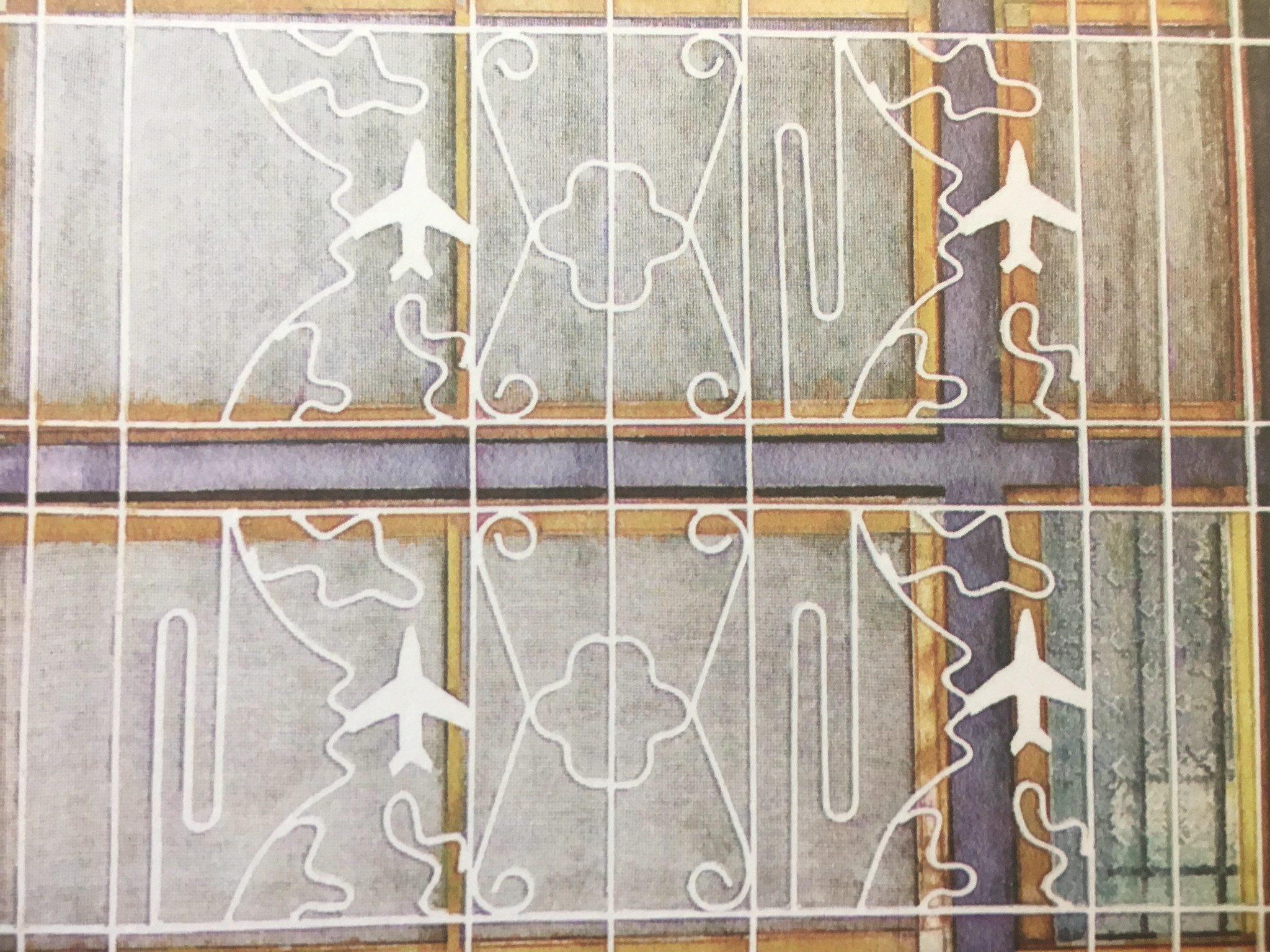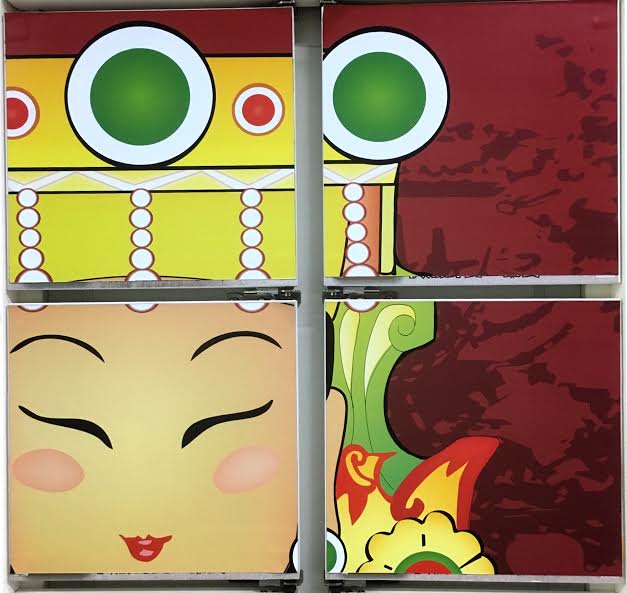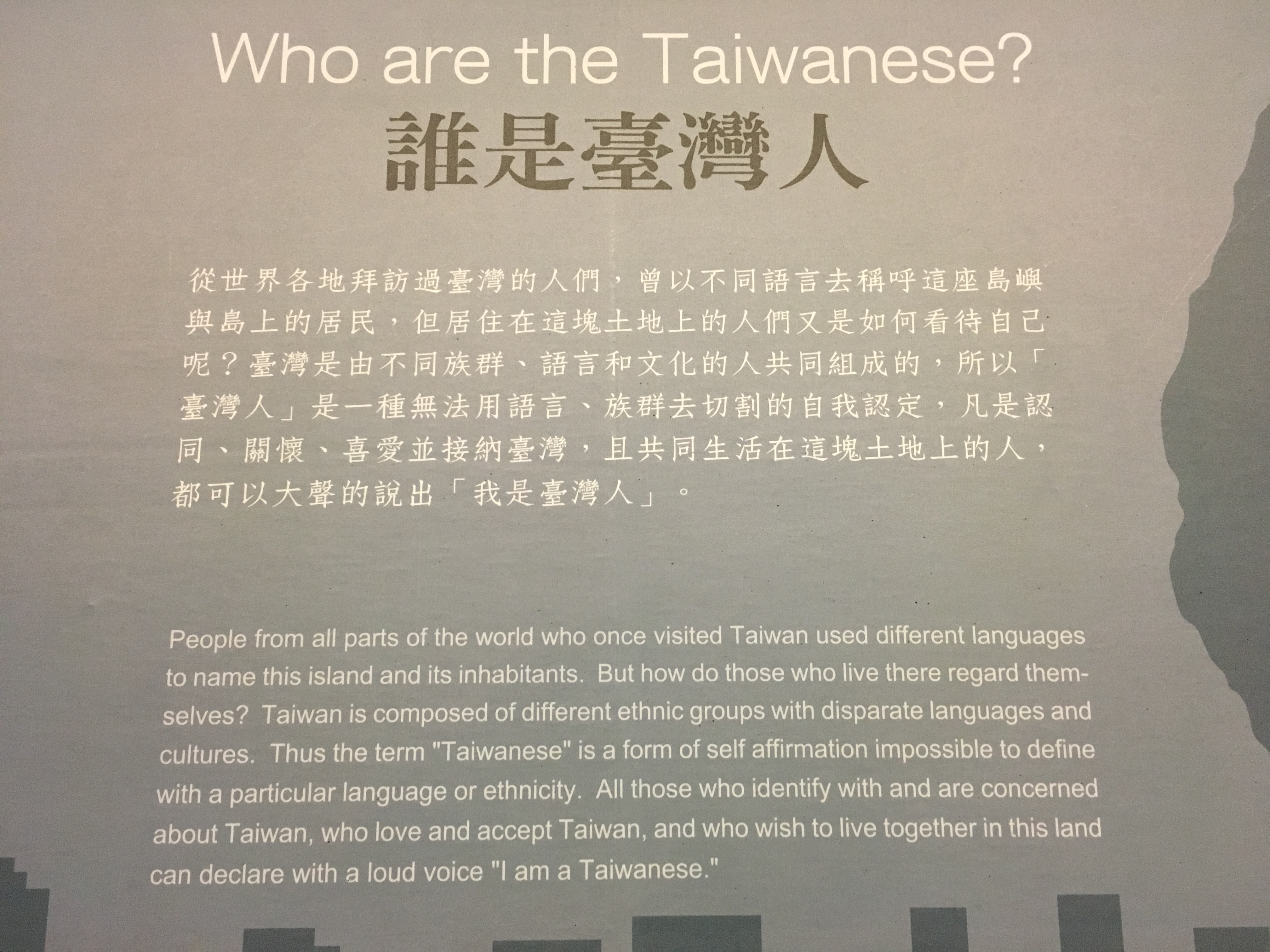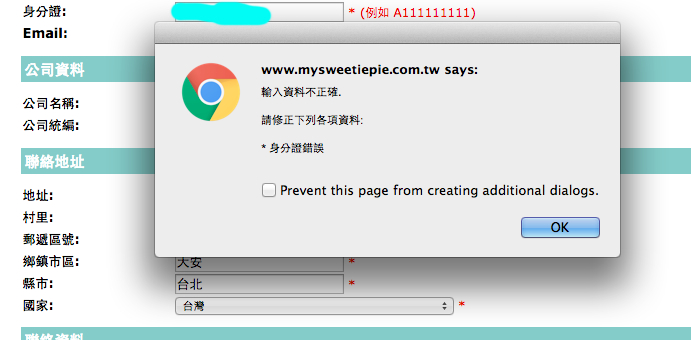
When I first moved to Taiwan, dual nationality for long-term foreigners was not even on the radar. At the time, I wasn't too concerned: I didn't think I'd come to care this much about the country, did not imagine I'd stay for more than a few years, and if I did, figured that permanent residency would be sufficient.
Now, it's a concerted movement, and we've even had some victories (sort of).
With this sort of movement, there will always be detractors. The best we can do is defeat their arguments and see that they remain a minority without derailing us. I don't really understand them: it feels like opposing for the sake of opposing, often not really understanding what it is exactly that they are against (this also seems true for a lot of arguments made by conservatives). Immigrants against immigrants for no good reason at all.
In any case, there are a few things that I've heard from members of this camp, and I'd like to gather them all here so that I don't have to keep repeating myself when I see these things come up again and again.
We can't just let anyone fresh off the plane get citizenship!
Nobody is suggesting this - it's a massive straw man. Pretty much every advocate of dual nationality agrees that there must be restrictions on it. A general consensus seems to be 5 years for the APRC is fair (though the "no break in your visa" rule is a bit archaic when plenty of vindictive bosses will ensure you do have a break - how about no period of illegal stay in Taiwan or an easier process for changing jobs that doesn't allow a boss to screw over a foreigner this way?), and another 5 years for citizenship. I would even accept a detailed application process. Quite literally nobody thinks that you should be allowed to just walk off a plane and be granted this.
Even with children who were born here to non-citizen parents, as birthright citizenship is not likely to happen, the obvious solution is to give them permanent residency when one parent gains it, and then the same waiting period for citizenship we all have to go through.
If we hand out citizenship like candy, Taiwan will be swamped!
Not really. Permanent residency (the APRC) is available to all professional workers in Taiwan now, but very few of them apply - there maybe a few thousand in the entire country who have it. This is because most do intend to only be in Taiwan temporarily, and either leave of their own volition or are transferred out by their companies long before the 5 years' residency necessary to obtain an APRC. Or, they stay but are on a JFRV (essentially a marriage visa), which confers similar-but-different rights.
It is likely that, with so few APRC holders, even fewer would seek citizenship.
Secondly, most people who would seek citizenship are already here. I don't anticipate a huge influx of people. Things would stay more or less the same, except one group of people who has made Taiwan their home will have more equal rights and have that relationship to Taiwan made official. That's all.
Thirdly, Taiwan is an aging country which isn't replacing its own population. I don't think the country can grow safely grow much denser, but in terms of simply maintaining a youthful and productive population, immigration is a pretty clear answer. Immigration would actually benefit Taiwan in this way more than people realize.
Sure, maybe not many Westerners will apply, but we'll be swamped...by Southeast Asians!
So? Do you think that's a problem simply based on where they come from - like there is a problem with them simply because of their origin? If so, that's racist (no really, that's like a classic definition of racism).
Secondly, I doubt it. Most SE Asians who stay do so because they married locally, and as such have a visa regardless. Something like one in every five children born in Taiwan today has a foreign parent. The connection is real and already exists. Those who want to stay but don't marry are also a fairly small percentage of those who come here to work - most, rather like Westerners, intend to eventually return to the country of their birth after earning money in Taiwan for a few years. I just don't think this will be the problem people imagine.
Thirdly, Southeast Asian laborers working in Taiwan have few rights and little recourse when they encounter problems (which range from being abused by their
Finally, and yes I do think this is unfair, remember that foreign laborers in Taiwan, as opposed to "foreign professionals", do not have the same path to an APRC. Westerners - most professionals are Western, most laborers SE Asian - already have an advantage. That's not right, and I would like to see a change, but the argument above is false simply because this is the way things currently are.
An APRC is sufficient if you want to stay in Taiwan.
No, it isn't. Not when you get old.
A lot of people think we just want the right to vote. In fact, while that matters to me, it's toward the bottom of the list of reasons why I want dual nationality. At the top of the list are all the things I will need to arrange if I am going to live out my days here.
We cannot get a mortgage here - it's not illegal, it's that banks won't lend to non-citizens - but with the amount of money we are able to save at Taiwanese pay rates, we won't be able to pay rent well into our old age. At some point, probably within the next ten years, we will need to buy a place to live. Even if we could rent forever, Taiwanese landlords don't like to rent to the elderly. It's just not a good plan for the future, even though neither of us is very big on home ownership for its own sake (it doesn't seem to be a particularly good investment if that's all you're buying it for, but it does make sense if you are trying to arrange things so that you have a paid-off place to live someday).
I'm not even sure how we would be able to keep our National Health Insurance after retirement, though I am told it is possible.
At some point I am intending to go after a more academic job. These jobs tend to come with pensions, but APRC holders are not eligible for them (I believe they get a lump sum payment which is less than the pension typically pays out).
And finally, although I hope never to need it, if it ever came down to one of us being incapacitated and needing a home health aid, there are subsidies available through the government for citizens that are not available to non-citizens.
All of these things are important if we are going to live here in our old age, and none are possible on an APRC alone. Without citizenship, I've run the numbers and it is not possible for us to stay in Taiwan forever. We are not spendthrifts, and we are not lazy. This is just how the numbers roll out for two normal, non-wealthy people.
It is, truly, a dealbreaker.
You're just selfish, thinking about what you are entitled to. Me, I'm so wonderful, I just want to contribute to this country without demanding entitlements in return like a selfish person, with your selfish demand for "rights".
It's not selfish to want equal rights and to build a normal life in the place you call home. That quite literally doesn't make any sense. It's natural and normal to want rights, and to be able to live as an equal where you are, if you have been there long enough to put down roots.
In fact, I don't even understand the relationship drawn here. The two are not mutually exclusive.
Wanting equal and reciprocal rights when we've already made Taiwan our home (we didn't just land here and demand them - nobody did, at least nobody sane) is not incompatible with wanting to contribute to Taiwan. It's not like once you want rights, you suddenly don't care about the country anymore, and saying you don't "need" these rights doesn't suddenly make you a selfless martyr for the country.
Besides, I am sure these self-professed angels will be first in line for a new passport if we successfully gain these rights for all. I doubt, then, that they will look back and realize they let us do all the work while they sat around casting aspersions, and they are now benefiting from our activism.
But it's hard for Taiwanese to immigrate to your country. Why do you think you are more deserving?
I won't deny that it is difficult for a Taiwanese person to immigrate to the US and obtain citizenship, especially in today's political climate. However, a path does exist for them which does not exist for me because of Taiwan's laws, not the laws of my birthplace. Besides, it's simple reciprocity: Taiwanese are allowed to have dual nationality, so there is no reason to withhold it from naturalized citizens. Few, if any, other countries have such a stunning lack of reciprocity, mostly stemming from ethnocentric and racially prejudiced ROC laws written in the 1920s.
And yes, I think I'm just as deserving as any current Taiwanese citizen who lives here, works here, participates in society and contributes to Taiwan in whatever way I can. We shouldn't have to give up everything so the church can pay our bills while we work in a rural village to both do good things and also win converts to that same church in order to qualify.
If you really want to be Taiwanese, then renounce your original nationality. Simple!
No, it's not simple.
Let's set aside the fact that naturalized citizens face a threat that Taiwanese don't, which is that if at any point Taiwan is annexed by China, we will be immediately stateless. I'm setting that aside because, while Taiwanese won't be "stateless", they would become Chinese citizens and that is only marginally better (and quite unacceptable to most Taiwanese), and also because I think it's unlikely.
Instead, let's look pragmatically at what many of us face: in my case, I have a single dad near retirement age to worry about. Taiwanese quite eloquently point out that they don't give up their Taiwanese nationality because they have aging family members in Taiwan they might have to return to look after. Well, it's exactly the same for me. I might have to return to the US someday, temporarily, to be there for my dad. I can't do so as a tourist, if they let me in at all (the US is not that welcoming to renounced citizens) - the length of time I might need to be there is indeterminate, and I'm not rich; I'd need to work. We can't afford to pay someone else to take care of him, either, should it come to that.
I have no real loyalty to the USA, but giving up my American citizenship means quite literally abandoning my father. Generally speaking, Taiwanese are too "filial" to do something like that. Frankly, so am I.
That's not even getting into the injustice of a double standard for born vs. naturalized citizens - someone born here doesn't have to make that choice, so neither should I.
You're a foreigner - why SHOULD you have the right to vote? I wouldn't want a bunch of foreigners trying to change Taiwan once they get political power.
I highly doubt that a few thousand - and I doubt there would be many more than that - foreign citizens would have any real impact. I'm not even sure we'd vote in a bloc. But even if we did have more power through political representation, so what? So people who call Taiwan home have a say in how that home is governed? Oh no, call the Atrocity Police, what these foreigners are doing by being responsible civic participants in the place where they live is so heinous and unthinkable! Oooh noooo!
And anyway, what exactly makes us foreigners? Two things - the first is that we usually look different and have a different culture (which doesn't mean we can't assimilate and live within Taiwanese culture). The second is that we are not citizens.
So, if we become citizens, by law we won't be foreigners. Most of us can and do live within Taiwanese cultural norms, although mishaps do happen. The only difference, then, will be that we look different. None of us is trying to play at yellow face or pretend we are Asian when we're not, so I don't really see why that matters. We want to participate in a society whose values we share and whose future we care about, that's all.
Are you really saying we don't deserve citizenship based on our race? Do you really think Taiwan is so homogenous when so many Taiwanese children have a foreign parent, and so many waves of colonists have come to its shores? Do you really think ethnic homogeneity is even a reasonable argument?
But what about China? They'll send tons of people over, and many of them might work to destabilize Taiwan.
I would like to wave this away, but I have to agree it's a very real threat. Although I am loathe to say that there should be restrictions on who has a path to dual nationality based on national origin, in China's case the threat is very real. It's a core threat, in fact, to the very existence of Taiwan. It is justified, then, to not extend this right to Chinese citizens at this time for very real security concerns.
This is just what YOU want, with your WESTERN attitudes about immigration, but Taiwan isn't ready for this and you can't force them, you cultural imperialist!
Taiwan has been a place of immigration for centuries and still is. The majority of Taiwanese have ancestry that did not originate in Taiwan. This is nothing different, and even Taiwanese are realizing that an argument for Taiwanese nationality based on race is not a strong one.
I have never met a Taiwanese person who thinks I don't ever deserve Taiwanese nationality no matter how long I stay. I've met some who assume I don't want it, or I don't consider this home, or I will leave someday, but none who think I shouldn't want it, shouldn't consider this home, or must leave someday.
In fact, the main issue I encounter among locals is that they don't realize we face this restriction. The majority of people I talk to believe that, after a certain number of years, we can become citizens and the only reason we don't is that we don't want to. They are often shocked to find out that that's not the case. Often, they ask why our country won't allow it, and are again shocked to learn that the problem is their own government. All - every single person I've ever talked to about this, and I talk about it a lot if you hadn't noticed - every single one and I'm not exaggerating - has then come out in support of changing the laws and expressed a desire to welcome 'New Taiwanese' to their country. Every single one has said that they believe the criteria to be Taiwanese should be based on living in Taiwan, caring about Taiwan and identifying with Taiwan. Nobody has ever, ever made it about race or Western ideas or any of that.
This is perhaps because this facet of liberalism isn't inherently "Western". It's human. Nobody from "The West" came over and told Taiwanese to think this way. They just do, because they are human beings who have built the most liberal society in Asia.
It's only other foreigners who do so. I am sure there are Taiwanese who also feel this way, but it says a lot for how common that belief is that I have never met one.
Think about that, next time you try to speak for an entire country and get it wrong.
Whatever. You want dual nationality but you wouldn't fight for Taiwan!
You've got that relationship backward.
Right now, while I want to say I'd stand up for Taiwan if it were ever threatened, I have to ask: why would I stand up for a country that won't stand up for me? Why would I risk my life for a country whose government explicitly wants me to remain an outsider?
I'm not even sure they'd let me fight if I tried.
My notion of what responsibilities I have to Taiwan would change drastically if I felt the government accepted me here as a true immigrant, as a new kind of Taiwanese. That's a country I would stand up for.
Of course, there are a lot of other issues to consider here: I'm not a fighter in the traditional sense, I'd probably create more problems than I'd help solve in an actual war-time situation, being someone who looks foreign and isn't really trained, experienced in or even good at hand-to-hand combat (not that I've ever tried - I've never gotten into a physical altercation in my adult life). So if I did stay and fight, how much would that be a White Savior thing that just creates more problems, and how much would I really be of use? The army certainly wouldn't recruit me considering my poor eyesight, age and general academic doughiness.
All that aside, there are things one can do in the event of war that don't involve front-line fighting. Given citizenship, I would do everything in my power to help in any way that I could effectively do so. I suspect many foreign residents here feel the same way.



